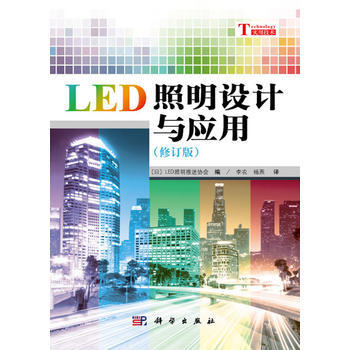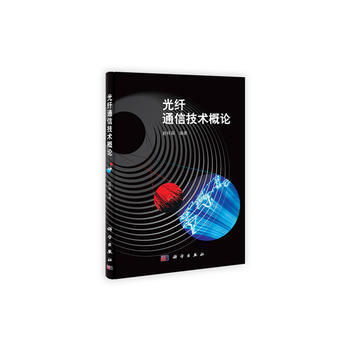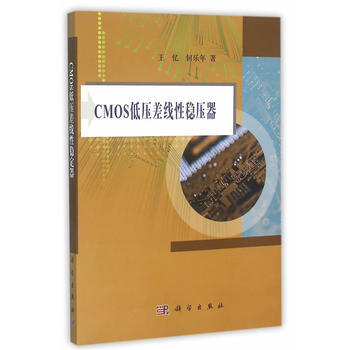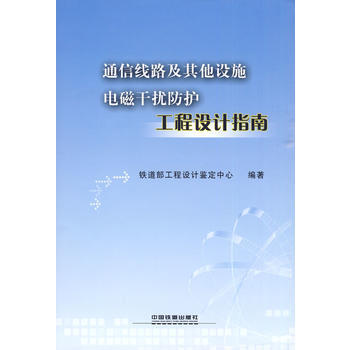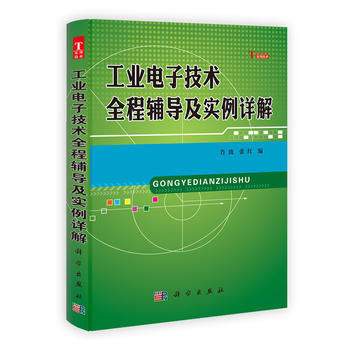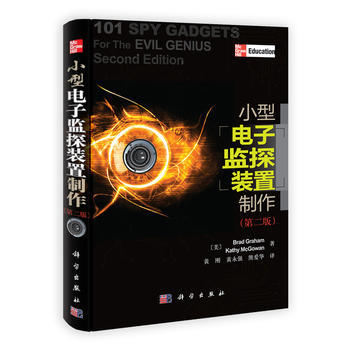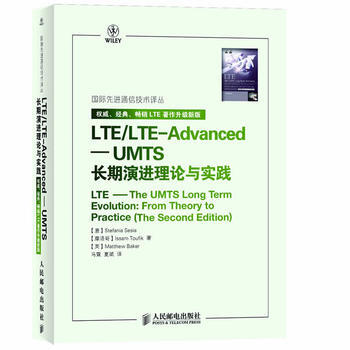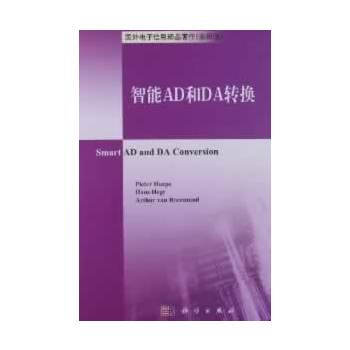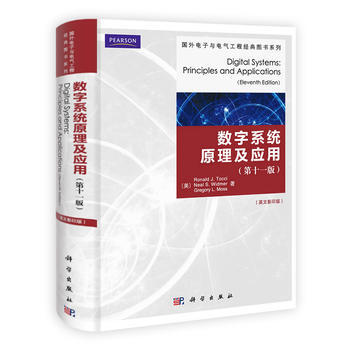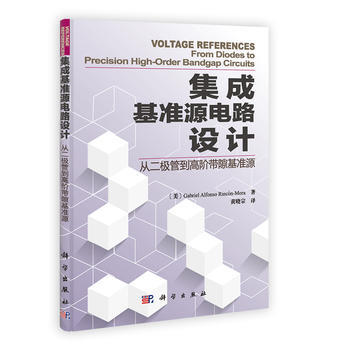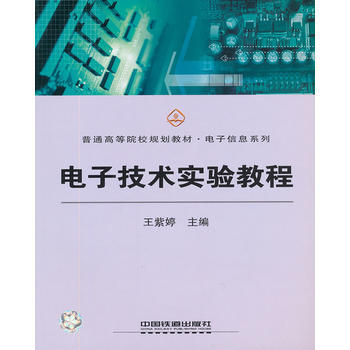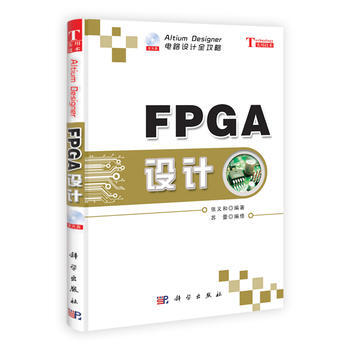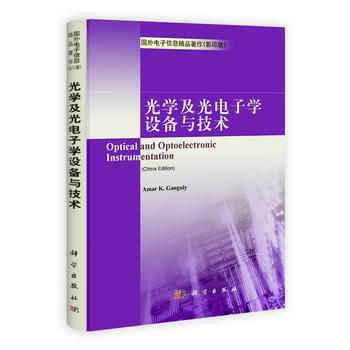

具体描述
基本信息
书名:光学及光电子学设备与技术(影印版)
定价:68.00元
作者:〔印〕伽戈利(Amar K.Ganguly)
出版社:科学出版社
出版日期:2011-05-01
ISBN:9787030307545
字数:
页码:
版次:1
装帧:平装
开本:16开
商品重量:0.522kg
编辑推荐
本书详述了近年来先进的光学及光电子学设备及技术。适合光电子学专业本科生作为教材使用,本书的主要特点有:每一章后都附有相应的参考题目关于光电子设备大量的习题对各种光电子设备详细的论述深入浅出,直观的语言用法易于阅读。
内容提要
光学及光电子学设备与技术一书详述了近年来先进的光学及光电子学领域的技术设备。光学及光电子学设备与技术(影印版)对各种光电子设备做了深入浅出的论述,附有大量的习题,语法直观易于阅读。光学及光电子学设备与技术(影印版)既可作为光电子学相关领域专家的重要参考资料,又可作为当前光电子学教学中所需的实用教材,也可以作为研究人员的参考书,对当前光电子学课程教学能起到很好的补充作用。
目录
Acknowledgement
Preface
1. Wave particleduality of light
1.1 introduction
1.2 particleproperties of wave
1.2.1 PhotmlectricEffect
1.2.2 Quantum Theory of Light
1.3 waveproperties of particle
1.3.1 UncertaintyPrinciple
1.4 experimental proof of wave particleduality
1.5 radiometry
1.5.1Luminescence
1.5.2 Radiation
1.5.3 JunctionPhoto-Effect
1.5.4 Optical SourceParameters
1.5.5 Optical Detector'sParameters
1.6 laws of radiation
1.7 radiometricfundamentals
1.7.1 Basic Radiometer
SolvedProblems
Unsolved Pmbiems
ReviewQuetions
Choose the CorrectAnswer
References
2. Geometricaloptics
2.1 Introduction
2.2 Optical pathformation principle
2.2.1 Fernat's Principle
2.3Image formation
2.4 Refractive index
2.5 Hygienprinciple of wavefront
2.6 Interference oflight
2.7 Laws of reflection
2.7.1 Laws ofReflection From Fermat's Principle
2.8 Laws ofrefraction
2.8.1 Laws of Refraction from Fermat'sPrinciple
2.9 Applications ofhuygen'sprinciple
2.9.1 Laws of Refraction using Huygen'sPrinciple
2.9.2 Total Internal Reflection
2.9.3Laws of Reflection using Huygen's PrincipaIe
SolvedProblems
Unsolved Problems
ReviewQuestions
Objecrive Questions
Choose the CorrectAnswer
References
3. Refraction and reflection byspherical surfaces
3.1 introduction
3.2 gaussianformulae for single surface
3.2.1 Derivation oftheGaussian Formula
3.3 newtonian formula
3.4 thinlenses
3.4.1 Lens Formula
3.4.2 LateralMagnification
3.4.3 Power of Lens
3.4.4 ImagesFormed by Lenses
3.5 aberration of lenses
3.5.1Chromatic Aberration
3.5.2 MonochromaticAberrations
3.5.3 Spherical Aberration
3.5.4Coma
3.5.5 Astigmatism
3.5.6 Curvature ofField
3.5.7 Distonion
3.6 sphericalmirrors
3.6.1 Mirror ForrnuIa
3.6.2 LateralMagnification
3.6.3 Power of SphencalMirror
3.6.4 Uses of Lenses
3.6.5 Uses ofMirrors
Solved Promems
UnsolvedProblems
Review Questions
ObjectiveQuesrions
Choose the CorrectAnswer
References
4. Opticalinstruments
4.1 Introduction
4.2 HumanEye
4.2.1 Defects of Vision
4.3Camera
4.3.1 Working Principle of a Camera
4.3.2Lens System of Camera
4.3.3 D:aphragm of aCamera
4.3.4 Shutter of a Camera
4.3.5 Stops andApenure
4.4 Microscope
4.4.1 CompoundMicroscope
4.4.2 Magnification of che CompoundMicrohcope
4.4.3 Microscope Objectives
4.4.4Eyepieces
4.4.5 Numerical Aperture
4.5Telescope
4.5.1 Astronomical Telescope
SolvedProbtems
Objecrive Questions
Chouse the CorrecrAnswer
Review Questions
References
5.Dispersion
5.1 Introduction
5.2Prism
5.3 Dispersion by a Prism
5.4Refractometers
5.4.1 GoniometricRelationship
5.4.2 InterferometricRelationship
5.4.3 Types of Refractomerers
5.4.4Jamin's Refractometer
5.4.5 Mach-ZehnderRefractometer
5.4.6 Rayltigh'sRefractorer
5.4.7 Pulfrich Refractometer
5.5gratings
5.6 monocromator
5.6.1 PrismMonochromator
5.6.2 Grating Mnnochromator
5.6.3Ebert-Fa'srlstie Grating Monochromator
5.7spectrometer
5.8 profile projector
5.9interferometer
5.9.1 MichelsonInterferometer
5.9.2 Fabry-PerotInterferometer
Solved Pmblcms
UnsolvedProhIerns
Review Qlteainns
ObjectiveeQustions
Choose the corrctanwser
Refewnces
6. Luminescencediodes
6.1 introduction
6.2electroluminescence
6.2.1 EIectroluminescentDevices
6.3 optoelectronic semiconductormaterial
6.3.1 Injection Luminescent Device
6.3.2Injection Efticiency
6.3.3 Injection Efficiency ofHeterojunction Structure
6.3.4 RebinationEfficiency
6.4 light emitting diode (LED)
6.4.1LED Construction
6.5 led structures
6.5.1 PlanarLED
6.5.2 Dome Shaped LED
6.5.3 HeterojunctionLED
6.5.4 Surface Emitting LED
6.5.5 EdgeEmitting LED
6.5.6 LED Chancteristics
6.5.7Intensity Distribution of Led
6.5.8 Temperature Dependenceof Output Power of LED
6.5.9 Spectral OutputCharacteristics of LED
6.6 modulation bandwidth ofLED
6.7 reliability of LED
6.8 advantages ofLED
6.9 uses of light emitting diodes
SolvedProblems
Unsohred Pmhiems
Reviewuestions
Objective Questions
Choose the CorrectAnswer
References
7. Laser
7.1introduction
7.2 mechanism of light wavegeneration
7.3 population inversion
7.4 opticalfeedback in laser
7.5 threshold condition andgain
7.6 gas laser
7.6.1 Helium NeonLaser
7.6.2 Carbon Dioxide Laser
7.7 solid statelaser
7.7.1 Ruby Laser
7.7.2 Nd:YAGLaser
7.8 liquid laser
7.9 semiconductorlaser
7.9.1 Semiconductor Laser Structure
7.9.2Buried Heterostructure Laser
7.9.3 Distributed FeedbackLaser
7.9.4 Quantum Well Lases
7.9.5 Mode Lockingin Laser
7.9.6 QSwitching in Laser
7.9.7 TunableSemiconductor Laser
7.10 properties of laserlight
7.11 advantages of laser over other opticalsources
Solved Problems
UnsolvedProblems
Rcrniew Questions
Choose the CorrectAnswer
References
8. Opticaldetectors
8.1 introduction
8.2 thermaldetectors
8.3 quantum detectors
8.3.1Photoelectric Effect
8.4 photoemissivecells
8.4.1 Photocell
8.4.2 Gas FilledPhotoemissive Tubes
8.4.3 PhotomultipIiers
8.5semiconductor photoelectric transducer
8.5.1 LightDependent Resistor(LDR)
8.6 photovoltaic cell
8.7light activated silicon controlled rectifier (lascr)
8.8photo-conductive detector
8.9 solar cell
8.9.1Heterostructured Solar Cell
8.9.2 Quasi MonocrystallineSilicon Solar Cell
8.10 p-n junctionphotodiode
8.10.1 Pin Photodiode
8.10.2 AvalanchePhotodiode
8.11 phototransistor
8.12 high-speedmetal-semiconductor-metal photo diode
SolvedProblem
Unsolved Problems
ReviewQuestions
Objecrive Questions
Choose the CorrectAnswer
Refemnces
9. Fiber optics
9.1introduction
9.2 optical fiber material
9.3fabrication of optical fiber
9.3.1 OpticalFibers
9.3.2 Optical Fiber Cables
9.4 opticalfiber as waveguide
9.4.1 Step Index Fiber
9.4.2Graded Index Fiber
9.5 principle of raypropagation
9.5.1 Meridional Ray
9.5.2 SkewRays
9.5.3 Acceptance Angle and NumericalAperture
9.6 electromagic wavepropagation
9.6.1 EIsctromagic Wave Propagation in StepIndex Fiber
9.6.2 EIecsrornagic Wave Propagation inGraM Index Fiber
9.7 single mode and multimodefiber
9.7.1 NomaIized Frequency
9.7.2 Cut offWavelength
9.7.3 Mode Volume
9.7.4 Mode FieldDiameter
9.7.5 Effective Refractive Index
9.8advantage of optical fiber
9.9 losses in opticalfiber
9.9.1 Absorption
9.9.2 Material AbsorptionLosses
9.9.3 Extrinsic Absorption Loss
9.9.4Intrinsic Absorption Loss
9.9.5 Absorption Los: 3ue toAtomic Defects in Basic Material (Glass)
9.9.6 ScatteringLosses
9.9.7 Rayleigh Scattering Loss
9.9.8 Miescattering loss
9.10 nonlinear scatteringlosses
9.10.1 Brillouin Scattering
9.10.2 RamanScattering
9.11 fiber bendlosses
Problems
ReviewQuestions
Objective Questions
Choose the CorrectAnswer
References
10. Optocoupler and fiber opticinstrumentation
10.1 introduction
10.2optocoupler
10.2.1 Main Features ofOptocoupler
10.2.2 Basic Components of OproeEecmnicCoupler
10.2.3 Fhotodetector
10.3 characteristicsof optoelectronic couplers
10.4 optoelectronicisolator
10.4.1 LED-Photodiode OptoelectronicIsolator
10.4.2 Isolation of LED-Photodiode OptmIectronicIsolator
10.4.3 LED-Phototransistor OptlwlectronicIsolator
10.5 speed of response of optoelectroniccoupler
10.6 applications of optoelectronicisolators
10.6.1 AC Line Voltage Monitor
10.6.2Fiber Optic Pressure Sensor
10.6.3 Fiber Optic FlowSensor
10.6.4 Optical Fiber DisplacementSensor
10.6.5 Optical Current Sensor
10.6.6 FiberOptic Displacement Sensor
10.6.7 ProfileProjector
10.7 optoelectronic sensors andtransducers
10.7.1 Temperature Sensors
10.8 oragggrating filter
10.9 optical spectrumanalyzer
10.10 fiber amplifiers
10.10.1 SRS andSBS Fiber Amplifier
10.10.2 Erbium Dopped Fiber Amplifiers(EDFA)
10.11 optoelectronic medicalinstruments
10.12 measurements on opticalfibers
10.12.1 Fiber AttenuationMeasurement
10.12.2 Measurement of Spectral Loss(Attenuation)
10.12.3 Spot AttenuationMeasurement
10.12.4 Optical Time Domain Reflectrometry(OTDR)
10.12.5 Absorption LossMeasurement
10.12.6 Refractive Index Profile Measurementof an Optical Fiber
10.12.7 Fiber Scattering LossMeasurement
10.12.8 OpticaI Fiber DispersionMeasurement
10.12.9 Measurement of Numerical Aperture ofan OpticaI Fiber
10.12.10 Outer Diameter Measurement ofOptical Fiber
10.12.11 Measurement af Core Diameter ofOptical Fiber
10.12.12 Measurement of Mode Field Diameterof an Optical Fiber
10.12.13 Optical Return Loss Due toReflectance
Solved Problems
UnsolvedPmblems
Review Questions
ObjectiveQuestions
Choose the ComerAnswer
References
11. Display devices andoptoelectronic measuring systems
11.1introduction
11.2 display systems
11.2.1 SevenSegment Alphanumeric LED Display
11.3 liquid crystal diode(lcd) display
11.4 plasma display
11.5optoelectronic measurement systems
11.6 optoelectronicsources
11.7 optical detector
11.8 opticaltransducer
11.9 photoelectric effect
11.10optical fiber sensor systems
11.11 modescrambler
11.12 mode filters
11.13 preparation ofoptical fiber ends
11.14 controlled fracturetechnique
Review Questions
ObjectiveQuestions
Choose the CnrwcrAnswer
References
12. Holographictechniques
12.1 introduction
12.2 basicprinciples of holography
12.3 theory
12.4properties of holograms
12.5 requirement of holographictechnique
12.6 application of holographictechnique
12.7 experimental arrangement for preparation ofhologram
12.8 different types of holograms
ReviewQuestions
Objective Questions
Choose the CnrwcrAnswer
References
Appendix-Ⅰ:Electro-optics andmago-optics
Appendix-Ⅱ:The PhysicalConstants
Refractive indices for opticalglasses
Refractive indices of opticalcrystals
Appendix-Ⅲ:Laser Classification andSafety
Appendix-Ⅳ:fiber optic instruments andponents
optical power meter
technicalspecifications
connectors and cleavers
butt jointconnectors
expanded beam connectors
technicalspecification
optical fiber cleaver
splicingmachine
fusion splice
v-groovesplice
elastic tubesplice
specifications
optical slightsource
Index
作者介绍
文摘
序言
用户评价
这本书对于我这样一位对光学应用充满好奇心的业余爱好者来说,简直是一扇通往新世界的大门。我一直对光学和光电子学在日常生活中的应用很感兴趣,但往往找不到一本能够系统地介绍这些应用的入门书籍。《光学及光电子学设备与技术(影印版)》虽然偏向学术,但伽戈利(Amar K.Ganguly)的叙述方式非常清晰易懂,并且大量运用了实际应用的例子来解释理论。书中关于光通信、光传感、光成像等章节,让我对这些技术在现代社会中的作用有了更直观的认识。例如,在讲解光纤通信时,书中不仅介绍了光纤的传输原理,还生动地描绘了光信号如何在光纤中传输、如何被编码和解码,以及光信号在长距离传输中遇到的挑战和解决方案。同样,在介绍光传感器时,书中也举例说明了它们在医疗诊断、环境监测、工业自动化等领域的广泛应用。这些贴近生活的案例,让我在学习抽象的物理概念时,能够感受到它们强大的生命力和实际意义,也让我对未来的科技发展充满了期待。
评分这本书的内容深度和广度着实令人印象深刻,尤其是它在光电子器件设计和制造方面的讨论。我作为一名对器件制造工艺颇感兴趣的工程师,经常在工作中遇到一些实际问题,而市面上很多书籍往往只停留在器件的原理层面,很少深入到工艺细节。《光学及光电子学设备与技术(影印版)》在这方面做得非常出色。作者在介绍半导体光电器件时,不仅讲解了PN结的形成机制,还详细介绍了外延生长、光刻、刻蚀、离子注入等关键的半导体制造工艺流程,并分析了这些工艺对器件性能的影响。书中对材料选择、器件结构优化、以及如何提高器件的可靠性和稳定性等方面的论述,都非常有指导意义。特别是关于LED和激光器制造的章节,详细介绍了不同材料体系(如GaAs、GaN、InP)的制备方法和特性,以及如何通过调整器件结构和工艺参数来优化发光效率、波长控制和功率输出。这些内容对于我理解当前的光电器件生产过程,并尝试解决实际生产中的问题,提供了宝贵的知识支持。
评分这本书真是让人眼前一亮!作为一名对光学和光电子学领域一直充满好奇的学生,我常常觉得市面上的教材要么过于理论化,要么又太偏向实用而缺少深度。伽戈利(Amar K.Ganguly)的《光学及光电子学设备与技术(影印版)》恰好填补了这一空白。从拿到书的那一刻起,我就被它扎实的理论基础和清晰的逻辑结构所吸引。作者在开篇就构建了一个宏大的知识体系,将光学和光电子学的基本原理娓娓道来,从光的波动性、粒子性出发,逐步深入到衍射、干涉、偏振等核心概念。我尤其欣赏的是,书中对于每一个概念的讲解都配有非常详细的数学推导和物理模型,这对于理解光学现象的本质至关重要。而且,它不仅仅停留在理论层面,书中大量的图示和案例分析,让抽象的物理原理变得生动形象。比如,在讲解激光器原理时,书中不仅详细阐述了受激发射、粒子数反转等关键过程,还配以精美的内部结构图,让我能直观地理解不同类型激光器的工作机制。这种理论与实践相结合的讲解方式,无疑大大提升了学习的效率和乐趣,也为我后续深入研究打下了坚实的基础。
评分我必须说,这本《光学及光电子学设备与技术(影印版)》的阅读体验简直是“丝滑”。作为一名刚接触光电子领域的研究助理,我之前阅读过几本相关的中文书籍,总感觉在概念的阐述上不够透彻,或者在技术细节上有所缺失。伽戈利(Amar K.Ganguly)这本书的翻译(虽然是影印版,但保留了原文的精妙)和排版都非常出色,文字流畅,逻辑严谨。它在介绍各种光电器件时,不仅仅是罗列它们的参数和应用,而是深入剖析了它们背后的物理原理和设计思路。例如,在讲解光电探测器时,书中详细分析了PN结、PIN结、APD等不同结构的光电探测器的工作原理、响应速度、量子效率等关键指标,并且针对不同应用场景(如可见光探测、红外探测、紫外探测)给出了相应的器件选择建议。更让我惊喜的是,书中还穿插了大量历史发展脉络和前沿研究动态的介绍,让我能够了解到这些技术是如何一步步发展演变至今,以及未来可能的发展方向。这种深度和广度的结合,让我在短时间内就对光电子学领域有了全面而深刻的认识,也激发了我进一步探索更具体技术细节的兴趣。
评分我最近刚好翻阅了这本《光学及光电子学设备与技术(影印版)》,说实话,它的信息密度非常高,每一页都充满了值得细细品味的内容。作为一名曾经的研究生,我之前接触过不少关于光学和光电子学的教材,但这本书在内容的组织和呈现方式上,有其独到之处。它并没有按照传统的“光学”和“光电子学”两部分严格划分,而是将两者紧密地结合在一起,从基础的光学现象出发,直接引申到相关的光电器件和技术。例如,在讲解全息术时,书中不仅仅介绍了全息成像的原理,还详细讨论了全息存储、全息显示等光电子技术,以及相关的器件和材料。这种“知识的串联”方式,让我能够更清晰地看到不同知识点之间的联系,也更容易理解一个技术是如何从基础科学原理发展而来的。此外,书中还包含了很多关于新型光电器件的介绍,比如有机LED、量子点LED、光子晶体器件等,这些内容都非常及时和前沿,对于想要了解行业最新发展动态的读者来说,非常有价值。
相关图书
本站所有内容均为互联网搜索引擎提供的公开搜索信息,本站不存储任何数据与内容,任何内容与数据均与本站无关,如有需要请联系相关搜索引擎包括但不限于百度,google,bing,sogou 等
© 2026 book.teaonline.club All Rights Reserved. 图书大百科 版权所有

